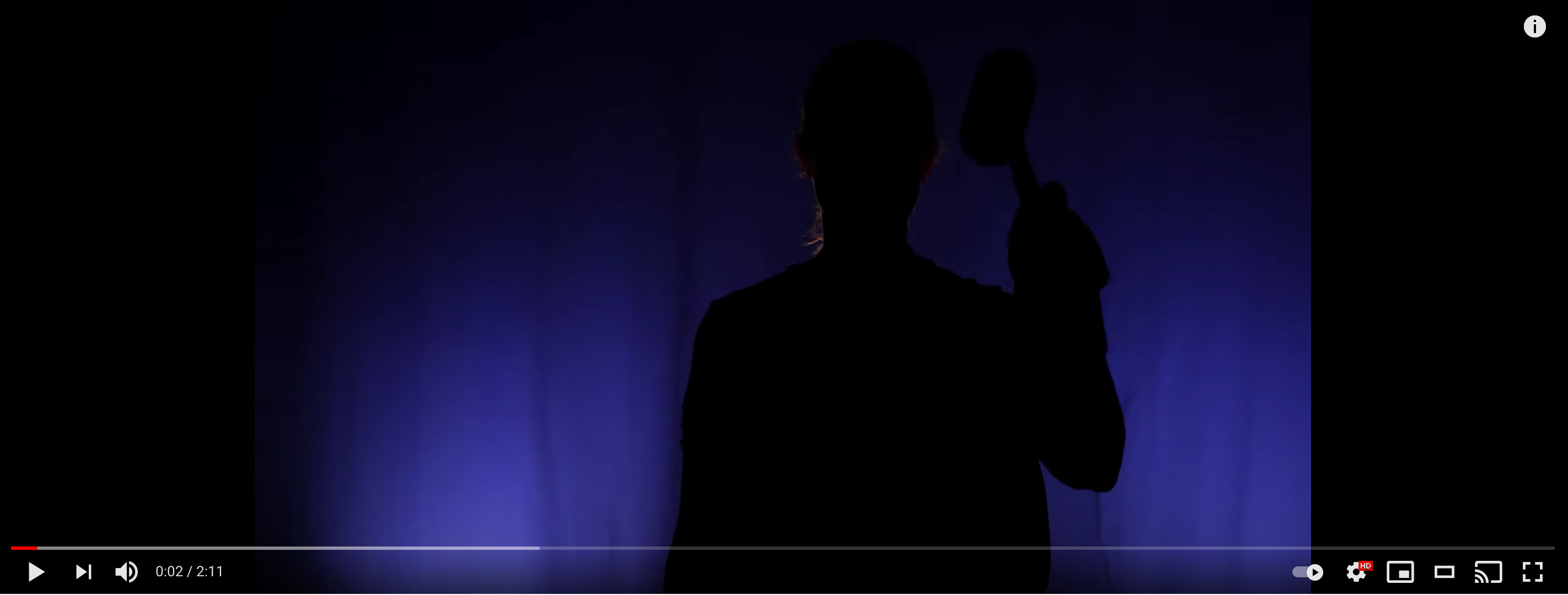97: It always ends the same way

Humanity as a for-profit business but instead of getting fired for bad performance you just die
--
This has been a big week for climate change news, not in the usual smoke blotting out the sun way, although smoke did blot out the sun in some places. But mainly I'm referring to a bunch of new international commitments and big speeches that came out of the United Nations General Assembly, and some multibillion-dollar philanthropic pledges too. There was also that weird thing with the late night talk show hosts doing climate change jokes and even This American Life had a climate change episode, at least I think it did, I turned it off when it literally started with Ira Glass saying, "It's been the kind of summer that makes it seem like the alarmists were right about everything ... so yeah, climate change is real." Come on man are you kidding me.
These kinds of developments should, and I guess they do on some level, feel like progress or maybe like products and byproducts of progress. But lately as we move closer to a place where big action on climate becomes an inevitability, my concern is shifting from fear over inaction to fear of taking the wrong actions. This was illustrated quite vividly when the NYT broke news that Joe Manchin, who once shot a climate bill with a gun and who meets weekly with the oil and gas industry and made half a million dollars last year off of coal production, is in the process of rewriting the Biden administration's climate legislation to make it friendlier to the fossil fuel industry.
Which gives you this chilling feeling that, yeah of course America will do something, but of course it will be all the wrong things. Or it will sound a lot like the right thing, but with a couple of caveats that ensure maximum wrongness. All of this has made the section from last week's newsletter on the way corporations co-opt the idea of just transition feel extremely resonant right now. You remember it was the section with the guy in the hot dog suit. Two points in particular, and I know I just sent it last week but it was kind of far down and I know you all are busy people so here is that bit again:
Moussu describes the rhetorical flourishes businesses use in their mission statements and goals that may include just transition, but in the same breath as other goals that are very likely in contradiction to it. Using language like “while,” “at the same time,” and “without sacrificing,” corporate just transition plans describe only win-win situations, which are never likely, and lack specifics on what happens when someone actually has to give something up or pay for something (spoiler, it is not them). In other words, they offer the promise of actions that may not serve their bottom line, on the condition that such actions serve their bottom line.
Another main insight is recognizing that corporations have folded the idea of just transition into a long-running industry CSR strategy, the “business in transition” narrative. In short, industry presents a narrative that 1) things were going along business as usual, 2) something alarming happened that requires urgent action, 3) business is already working on the solution but more needs to be done, and 4) if business’s hands are not tied by regulations, they can lead the way forward. But the trick is, this is a never-ending story. It is always a work in progress, wherein corporate actors must adapt to the latest challenge to continue their tireless work of ensuring a healthy and sustainable world when, in reality, their underlying objectives of profit, growth and power are undermining that world.
In other words, the following narratives are secret weapons to undermining progress toward a more just world:
- We can do the same basic things we have always done in pursuit of the priorities we have always pursued, [while ensuring/at the same time prioritizing/without sacrificing] racial and economic justice; and
- We know there is a problem, but we the people who benefit most from the system as it currently stands are working on it and have it under control, so please don't interfere.
The author here is specifically talking about narratives that corporations use when paying lip service to just transition during climate change. But this week I kept thinking, you know what, that is basically what, everyone says, all the time. By everyone I mean everyone in a position of power within a neoliberal regime. And the message is, we can continue our recurring pattern of extraction, depletion and exploitation in the pursuit of never-ending growth of GWP and wealth accumulation—but just, you know, do it a little better. Tighten a few screws.
That is the direction that, as we get more quote unquote serious about climate change, I am terrified we will end up pursuing. (And I use "we" in kind of weird sense, because I know it's not the thing I will be pursuing or lots of communities and groups of people will be pursuing, but it's what we, like the Big We will do.)
I'm beginning to think more and more that the fundamental question that faces all of us as we careen toward this catastrophe is—to what extent do you think the current system is equipped to handle this problem, so long as it is recalibrated to work better. Or, to what extent do you think some central architecture of society needs to be torn down and rebuilt (or rebuilt after it collapses on its own). You might think of this as a throwing the baby out with the bathwater question, but instead of a baby it's like a tiny little rich old man with a top hat and a monocle who is all pruned up and won't stop crying and pooping in the bathwater.
I don't know that it's necessarily a strict one or the other decision, maybe more like a sliding scale, but from that baby metaphor alone, it is probably clear that I am pretty solidly toward the latter camp these days. Although I guess I think of the tear down/rebuild as more of an adaptive reuse project, hacking off all the good parts and making something new and better out of them. Either way, I am afraid that to keep things mostly as they are puts us on a path to a maybe somewhat lower-carbon but still unsustainable future, and cleaves society further in two—those vulnerable to disaster and those extremely vulnerable to disaster.
One of the reasons that I and I think a lot of people (especially younger people) are feeling this way is this sense of being in a recurring bad dream where we just keep saying we are going to do things better this time around and—whether it's police reform, housing, economic redevelopment, drilling and mining, agriculture, water use—it always ends the same way. Bad.
I've been listening to this podcast miniseries about the state's COVID-19 recovery called Mass Reboot, produced by the MassINC Polling Group, which I think was really well done and explored the challenges of recovery in different sectors. But there's this sickening drumbeat that emerges across the episodes in which they point out over and over the ways the pandemic disproportionately impacted a subset of people, lower-income and people of color, and including people working service jobs, renters, gig workers, the growing section of the population that is made vulnerable.
But it's not just that COVID has had disparate impacts. COVID recovery has had disparate impacts too. The same patterns that made the pandemic so destructive toward some and not others replicated themselves in recovery efforts. So the BIPOC restaurant owners who had to close or barely get by thanks to community support were the least likely to secure PPP loans, while big chains scooped up funds. The arts collectives that have few or zero staff and often are not even incorporated were least likely to secure grant support. The students whose caregivers were most likely to have died in the pandemic are getting the least attention as schools panic about reading and math performance and test scores. Transit agencies react to budget deficits from reduced ridership by cutting service for cost savings, harming low income riders most. Even with moratoria in place, there were still evictions, some 70% people of color, all while the housing market continued to balloon. And on and on and on.
And keep in mind, all of this is happening at a time when we are shoveling billions to help people in need, a historic societal response to a crisis. And yet, it still always favors the wealthy. When you hear facts like that over and over again, delivered in a bloodless tone, "as we all know, there were many disparities..." it becomes impossible for me to think: well this is just a series of unrelated fuckups but we'll be sure to get it right next time. It becomes impossible to ignore the fact that cruelty is baked deep into this economic system, and things are only getting worse, with a larger and larger number of people in its teeth.
I know this is more of an angry gutbucket kind of post than usual (or I don't know maybe not), but it's the way I and I suspect a lot of people can't help but feel lately. Frustrated, fed up, dare I say radicalized. But I don't think the take home message here is that things never get any better. It's that, for things to get better, we have to stop thinking of the sum of humanity as a for-profit business, only instead of getting fired for bad performance you just fucking die.
That also means no longer assuming that such a thing is merely human nature. One of the characteristics of capitalism is not just that it is inherently unequal, it is that its participants must accept that violent treatment of huge swaths of society is natural, it's just the way we are, sorry we don't make the rules. Of course we make the rules.
--
Links
- Boston City Council mandated big emission reductions for large buildings, one of only a few such ordinances in the country. It's a major win, especially for climate justice advocates, because no offsets will be allowed and a board of community groups will oversee the process.
- Big news from UNGA, with China pledging to stop building coal plants abroad, and Biden pledging to double foreign climate aid, although tbh I have no idea how he expects to make that happen.
- Meanwhile, Biden's domestic climate agenda is imploding and Joe Manchin who is more or less on oil and gas industry payroll wants to rewrite it.
- Biden is doing a horrible job on immigration and Border Patrol is a rotten institution.
- Remember that article about how there's never been any federal rules on heat exposure in the workplace? Well OSHA says it's finally going to do it.
- Bill Gates continues to use his money and influence to steer Africa toward GM seeds, industrialized agriculture, pesticide use, petroleum based machinery instead of agroecology.
- More than half of young people think humanity is doomed.
- Baby poop has ten times as much microplastic in it as adult poop.
- A billionaire wants to build the city of the future in the Southwest, called "Telosa." What could possibly go wrong.
- Cars are horrible they killed 42,060 people last year. There are however some straightforward solutions.
- Hundreds of refugees, mostly from Africa, live in an abandoned factory in the Paris suburbs, and painted a 40-foot mural on the building to bring positive visibility to the residents.
- More ghost forests on the East Coast, trees turned pale white by encroaching saltwater from sea level rise.
- Cities and counties in Colorado are suing the oil industry for the costs of climate mitigation and adaptation. In this palace we stan lawsuits against the oil industry.
- Cool story of a queer collective in Seattle turning a big 12-bedroom property into affordable housing and community space.
- I don't know why Jon Stewart has to be such an asshole.
- I once read a profile of the founders of Genius that described them as "real-life John Ralphios." Media buffoon Chris Cillizza called them "the future of journalism." Sasha Frere-Jones quit the New Yorker to go work for them. And now, as we all could have predicted, the rap lyric annotation company turned media disruptor is headed for the shitcan.
--
Podcasts
I was a big fan of the Slowdown with Tracy K Smith, who stepped down from hosting after a great run. But now the Slowdown is back! And it's hosted by one of my favorite poets Ada Limón.
--
Listening
This new Low record Hey What is amazing. Like last week's pick Injury Reserve, it is the soundtrack to the apocalypse.

--
Boy oh boy angry post lookout someone needs a nap. On the upside of things, we are entering scented candle season again so I can look forward to our home being enveloped in the bourgeois comforts of scents like cardamom, toasted pumpkin, and leather jacket. Do yourself a favor and buy yourself a nice scented candle this weekend, maybe apple cider or Montana forest or fern and moss. You deserve it.
Tate

